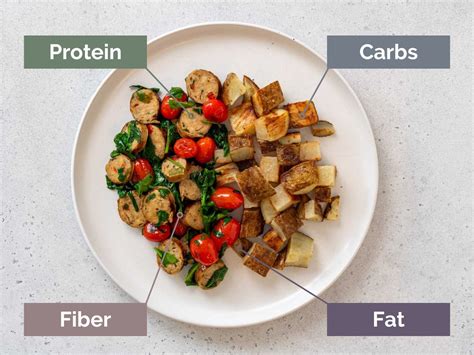Fuel intense workouts: best carb & protein timing for peak male performance?

Optimizing Performance: The Synergy of Carbs and Protein
For men engaged in intense physical training, nutrition isn’t just about what you eat, but also when you eat it. Strategic timing of carbohydrates and protein can be the decisive factor in enhancing workout performance, accelerating recovery, and ultimately achieving peak physical prowess. This guide dives into the critical role of macronutrient timing, helping you fuel your body effectively for the most demanding sessions.

The Scientific Basis: Why Timing Matters
The human body is a complex machine, and its fuel demands shift significantly around periods of intense activity. Carbohydrates are your primary energy source, replenishing muscle glycogen stores that power high-intensity efforts. Protein, on the other hand, is crucial for muscle repair, growth, and preventing catabolism (muscle breakdown). Timing these nutrients correctly ensures you have sufficient energy reserves for training and that your muscles have the building blocks they need for rapid recovery and adaptation.
While the “anabolic window” concept has been debated, there’s undeniable evidence that consuming specific nutrients around your workouts can optimize physiological responses, leading to better gains and quicker rebound.
Pre-Workout Fuel: Preparing for Peak Performance
What you consume before a workout directly impacts your energy levels, stamina, and ability to push through challenging sets. The goal is to top off glycogen stores without causing digestive distress.
Carbohydrates Pre-Workout
- Timing: 1-3 hours before your workout.
- Type: Complex carbohydrates (oats, whole-wheat bread, brown rice, sweet potatoes) provide sustained energy release. For closer to workout (30-60 mins), simple carbs like a banana or fruit juice can be beneficial for a quick energy boost.
- Quantity: Varies by individual and workout intensity, but typically 0.5-1 gram per pound of body weight.
Protein Pre-Workout
- Timing: Consume with your carbohydrates, 1-3 hours prior.
- Type: Lean protein sources (chicken breast, fish, eggs, Greek yogurt, whey protein) are ideal.
- Quantity: Aim for 20-40 grams to kickstart muscle protein synthesis and reduce muscle damage during exercise.

Intra-Workout Strategy: Sustaining the Grind
For most standard workouts (60-90 minutes), pre-workout nutrition is often sufficient. However, for extremely long (90+ minutes) or high-intensity endurance sessions, intra-workout nutrition can be beneficial to prevent fatigue and maintain performance.
- Carbohydrates: Fast-digesting carbs like dextrose, maltodextrin, or a sports drink (20-60g per hour) can provide a steady energy supply.
- Protein/BCAAs: Small amounts (5-10g protein or BCAAs) can help reduce muscle breakdown, though this is less critical than pre/post-workout protein.

Post-Workout Recovery: The Anabolic Window
The period immediately following an intense workout is crucial for recovery and muscle adaptation. Your muscles are primed to absorb nutrients, making it an ideal time to replenish glycogen and repair muscle tissue.
Carbohydrates Post-Workout
- Timing: Within 30-60 minutes post-workout is optimal, but the window is longer than previously thought (up to several hours).
- Type: Faster-digesting carbs (fruit, white rice, potatoes, sports drinks) are excellent for rapid glycogen replenishment.
- Quantity: Aim for 1-1.2 grams per kilogram of body weight, or a 2:1 to 4:1 carb-to-protein ratio.
Protein Post-Workout
- Timing: Again, within 30-60 minutes, alongside carbohydrates.
- Type: Fast-acting proteins like whey protein are highly effective due to their rapid absorption, but whole food sources are also good.
- Quantity: 20-40 grams of high-quality protein to maximize muscle protein synthesis.

Beyond the Workout: All-Day Nutrition
While peri-workout nutrition is vital, it’s essential to remember that overall daily intake heavily influences performance and recovery. Consistent consumption of adequate protein, complex carbohydrates, healthy fats, vitamins, and minerals throughout the day supports continuous muscle repair, energy balance, and hormonal health.
Aim for consistent protein intake (e.g., 20-40g every 3-4 hours) to maintain elevated muscle protein synthesis rates throughout the day. Balance your macronutrients based on your activity level, body composition goals, and personal preferences.
Individualization and Key Takeaways
Nutrition timing is not a rigid science, and individual responses can vary. Factors like workout intensity, duration, type of exercise, personal digestion, and overall daily diet all play a role. Experiment with different timings and food choices to find what works best for your body and your training regimen.
The most important takeaway is consistency: consistently providing your body with the right fuel at the right times will yield the best results for peak male performance and recovery. Don’t neglect total daily calories and macronutrient intake in favor of precise timing alone.









